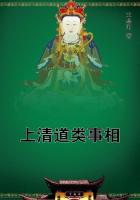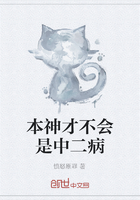""I don't think that.The Wilcoxes struck me as being genuine people,particularly the wife.""No,I don't really think that.But Paul was so broad-shouldered;all kinds of extraordinary things made it worse,and I knew that it would never do--never.I said to him after breakfast,when the others were practising strokes,'We rather lost our heads,'and he looked better at once,though frightfully ashamed.He began a speech about having no money to marry on,but it hurt him to make it,and I--stopped him.Then he said,'I must beg your pardon over this,Miss Schlegel;I can't think what came over me last night.'And I said,'Nor what over me;never mind.'And then we parted--at least,until I remembered that I had written straight off to tell you the night before,and that frightened him again.I asked him to send a telegram for me,for he knew you would be coming or something;and he tried to get hold of the motor,but Charles and Mr.Wilcox wanted it to go to the station;and Charles offered to send the telegram for me,and then I had to say that the telegram was of no consequence,for Paul said Charles might read it,and though I wrote it out several times,he always said people would suspect something.
He took it himself at last,pretending that he must walk down to get cartridges,and,what with one thing and the other,it was not handed in at the Post Office until too late.It was the most terrible morning.Paul disliked me more and more,and Evie talked cricket averages till I nearly screamed.I cannot think how I stood her all the other days.
At last Charles and his father started for the station,and then came your telegram warning me that Aunt Juley was coming by that train,and Paul--oh,rather horrible--said that I had muddled it.But Mrs.Wilcox knew.""Knew what?"
"Everything;though we neither of us told her a word,and had known all along,I think.""Oh,she must have overheard you."
"I suppose so,but it seemed wonderful.When Charles and Aunt Juley drove up,calling each other names,Mrs.Wilcox stepped in from the garden and made everything less terrible.Ugh!
but it has been a disgusting business.To think that--"She sighed.
"To think that because you and a young man meet for a moment,there must be all these telegrams and anger,"supplied Margaret.
Helen nodded.
"I've often thought about it,Helen.It's one of the most interesting things in the world.The truth is that there is a great outer life that you and I have never touched--a life in which telegrams and anger count.Personal relations,that we think supreme,are not supreme there.There love means marriage settlements,death,death duties.So far I'm clear.But here my difficulty.
This outer life,though obviously horrid,often seems the real one--there's grit in it.It does breed character.Do personal relations lead to sloppiness in the end?""Oh,Meg,that's what I felt,only not so clearly,when the Wilcoxes were so competent,and seemed to have their hands on all the ropes.""Don't you feel it now?"
"I remember Paul at breakfast,"said Helen quietly.
"I shall never forget him.He had nothing to fall back upon.
I know that personal relations are the real life,for ever and ever.
"Amen!"
So the Wilcox episode fell into the background,leaving behind it memories of sweetness and horror that mingled,and the sisters pursued the life that Helen had commended.They talked to each other and to other people,they filled the tall thin house at Wickham Place with those whom they liked or could befriend.They even attended public meetings.In their own fashion they cared deeply about politics,though not as politicians would have us care;they desired that public life should mirror whatever is good in the life within.Temperance,tolerance,and sexual equality were intelligible cries to them;whereas they did not follow our Forward Policy in Thibet with the keen attention that it merits,and would at times dismiss the whole British Empire with a puzzled,if reverent,sigh.Not out of them are the shows of history erected:the world would be a grey,bloodless place were it entirely composed of Miss Schlegels.But the world being what it is,perhaps they shine out in it like stars.
A word on their origin.They were not "English to the backbone,"as their aunt had piously asserted.But,on the other band,they were not "Germans of the dreadful sort."Their father had belonged to a type that was more prominent in Germany fifty years ago than now.He was not the aggressive German,so dear to the English journalist,nor the domestic German,so dear to the English wit.















